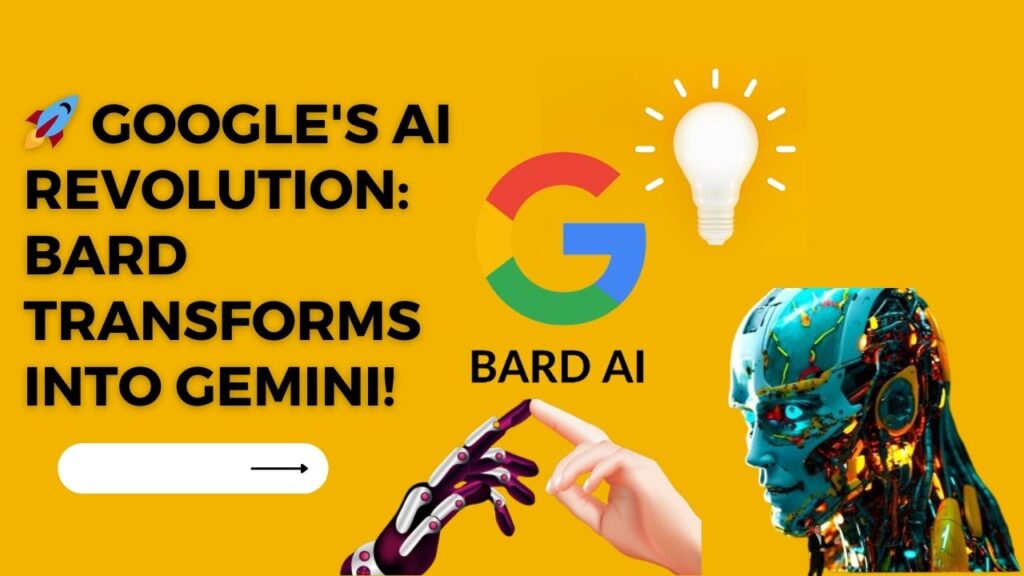
Google’s upcoming transformation of its AI chatbot Bard into Gemini marks a strategic move following the recent introduction of an image generation feature. This shift in nomenclature mirrors the approach taken by Microsoft when it rebranded its AI chatbot Bing to Copilot. The decision to undergo this rebranding process is likely driven by Google’s overarching strategy to integrate its LLM (Large Language Model) Gemini across various products, aligning the chatbot more closely with the underlying AI model.
The catalyst for this change was the release of an image generation feature for Bard, allowing users to create AI-generated images by providing text prompts. This functionality brings Google’s Bard in line with Microsoft’s Copilot, which also incorporates AI image generation. The leaked changelog, shared by developer Dylan Roussel on the X platform, indicates that the updates, including the name change from Bard to Gemini, are slated for release on February 7.
A key aspect of this rebranding effort is the potential introduction of a paid ‘Advanced’ tier, reportedly named Gemini Ultra. This move parallels OpenAI’s offering of its advanced large language model, GPT-4, through a paid subscription. Google’s Advanced tier may boast enhanced multi-modal capabilities, improved coding support, and the ability to explore and analyze files and documents in greater depth. This tiered approach to services is becoming a trend in the AI landscape, allowing users to access more advanced features and functionalities for a subscription fee.
The leaked changelog also hints at Gemini’s expanded reach, with the inclusion of Canada in this release. This would mark a significant expansion of Gemini’s availability since its initial launch, reflecting Google’s commitment to making its AI models accessible to a broader audience.
Google’s LLM model Gemini, introduced last year with three variants—Nano, Pro, and Ultra—positions itself as a powerhouse capable of complex tasks such as logical reasoning, coding, following nuanced instructions, and creative collaboration. This versatility underscores Google’s commitment to developing AI models that go beyond traditional language processing and extend into diverse domains.
The decision to rebrand Bard as Gemini is not just about a name change; it signifies Google’s strategic approach to consolidating and unifying its AI offerings under a more cohesive umbrella. This integration aligns with Google’s broader vision of providing users with seamless access to advanced AI capabilities across its suite of products.
In addition to the rebranding efforts, Google is rumored to be launching a dedicated Gemini app for smartphones. This app is designed to enable users to leverage Google AI for various tasks, including learning, writing, and planning. The integration with other Google services, such as Gmail, Maps, and YouTube, positions Gemini as a central hub for AI-driven interactions on mobile devices. Android users are expected to receive a standalone app for Gemini, while iOS users may access it through the existing Google app.
The leaked changelog provides insights into the features and capabilities of the Gemini app. Notably, the app is anticipated to be available on select devices, indicating a phased rollout strategy. Furthermore, Gemini is expected to support additional languages, including Japanese, Korean, and English, in most parts of the world. However, there may be exceptions for certain European countries and regions. Google plans to expand Gemini’s language support and availability to more countries in subsequent updates.
While these details have been gleaned from a leaked changelog, it’s essential to note that Google has not officially confirmed these developments. The tech giant is known for its iterative approach to product announcements, often revealing details closer to the release date. Nevertheless, the leaked information paints a compelling picture of Google’s ambitions in the AI space, showcasing a holistic strategy that encompasses rebranding, tiered services, and mobile app integration.
In conclusion, the rebranding of Google’s AI chatbot Bard to Gemini signifies more than just a change in name; it reflects a strategic move to align with Google’s broader vision of integrating advanced AI capabilities across its product ecosystem. The potential introduction of a paid ‘Advanced’ tier and the launch of a dedicated Gemini app for smartphones further underscore Google’s commitment to pushing the boundaries of what AI can achieve. As we await official confirmation from Google, the leaked changelog offers a tantalizing glimpse into the future of AI interactions and services from one of the tech industry’s foremost innovators.






